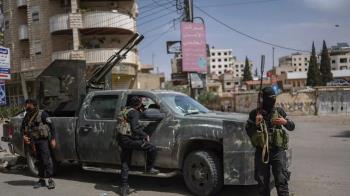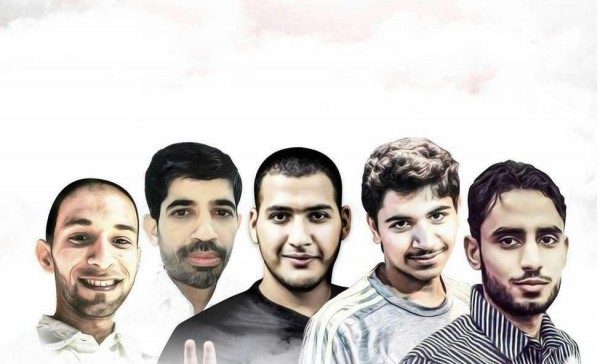Alwaght- The Bahraini regime has admitted to burying protesters killed by its forces in Diraz without handing over their bodies to their families.
In a statement on Sunday, two days after burying the bodies of the five people who were killed in the Diraz attack on May 23, 2017, the Bahraini Interior Ministry admitted to burying the killed civilians without handing over their bodies to their families for them to decide how they would like to hold their funerals and burial.
The Assistant Undersecretary for Legal Affairs at the Ministry of the Interior said on Sunday (May 28, 2017) that the process of burying the deceased, who died in the security operation in the village of Diraz, was made after contacting their families on Friday (May 26, 2017), and asking them to attend the burial. The ministry claimed that the families expressed their readiness to attend; however they later declined and refused to attend the burial. The Interior Ministry further claimed that this is documented by recordings. The Ministry of Interior's comments came in response to an article published by the local Al-Wasat newspaper in its Sunday issue, entitled, "The Five Diraz Deceased Buried without their Families' knowledge."
Last Tuesday, Bahraini forces stormed into the home village of the country's Shiite Muslims spiritual leader. The security operation reportedly aimed at ejecting people from the site of an encampment outside house of Ayatollah Sheikh Isa Qassim in Diraz where the prominent cleric's followers have been holding sit-in since June 20, 2016, when the authorities revoked his citizenship.
Heavily armed regime forces have killed five innocent civilians during the brutal operation which also left hundreds injured.
The unprecedented incursion into Diraz followed Ayatollah Qassim’s sentencing on last Sunday on charges of the 'illegal' collection of funds and money laundering. He was sentenced to one year in jail suspended for three years. The charges emanated from the collection of an Islamic donation known as Khums, which in Shiite Islam is collected and spent by a senior cleric in the interests of the needy.
Since the beginning of the Islamic awakening uprising in February 2011, Bahrainis have demonstrations on an almost daily basis demanding that the Khalifah dynasty relinquish power and a just system representing all Bahrainis be established. Despite the presence of Saudi and UAE troops assisting regime forces in the crackdown, the masses have persisted in their resistance.



























